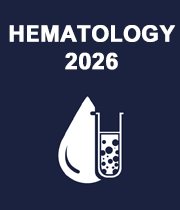Title : PD-L1 Expression in anaplastic large cell lymphoma
Abstract:
The programmed cell death 1 (PD-1) pathway is a recently recognized mechanism of tumor immune evasion. In our study, programmed cell death ligand 1 (PD-L1) expression was evaluated in patients with systemic anaplastic large cell lymphoma: including ALK+ and ALK-negative cases. ALK+ anaplastic large cell lymphoma was more often positive for PD-L1 than ALK-negative anaplastic large cell lymphoma. ALK-negative anaplastic large cell lymphoma showed a strong correlation between PD-L1 expression and STAT3 activation. In contrast, the PD-L1/pSTAT3 correlation was weaker in ALK+ anaplastic large cell lymphoma. In ALK-negative anaplastic large cell lymphoma, the PD-L1+ subgroup was more often EMA positive and tended to be less often CD2 positive. In ALK+ anaplastic large cell lymphoma, PD-L1 was not associated with pathologic features. Negative ALK status and high IPI score (> 3) were associated with shorter overall survival. Overall survival was not different between patients with PD-L1+ versus PD-L1-negative anaplastic large cell lymphoma, regardless of ALK status and International Prognostic Index (IPI) score. We conclude that PD-L1 expression is more common in ALK+ anaplastic large cell lymphoma than ALK-negative anaplastic large cell lymphoma. In ALK-negative anaplastic large cell lymphoma, PD-L1 is strongly correlated with STAT3 activation and is associated with more frequent EMA and less frequent CD2 expression. PD-L1 has no prognostic significance in predicting the outcome of patients with systemic anaplastic large cell lymphoma, regardless of ALK status. PD-L1 expression on the anaplastic large cell lymphoma cells suggests these patients as potential candidates for PD-1 blockade immunotherapy.
Audience Takeaway:
- PD-L1 expression is high in ALK+ ALCL and relatively lower in ALK-negative ALCL.
- PD-1 immunotherapy may be used in treating patients with ALCL.
- The underlying mechanisms of PD-L1 expression in ALCL needs further investigation.



